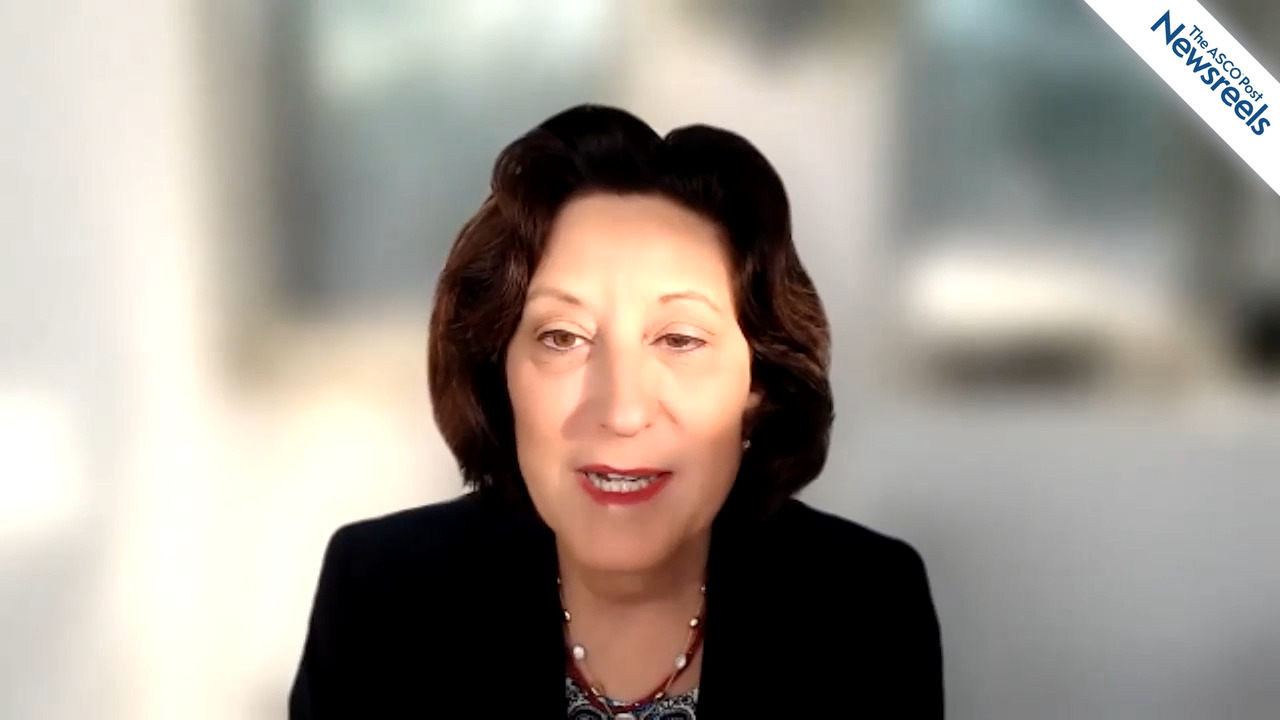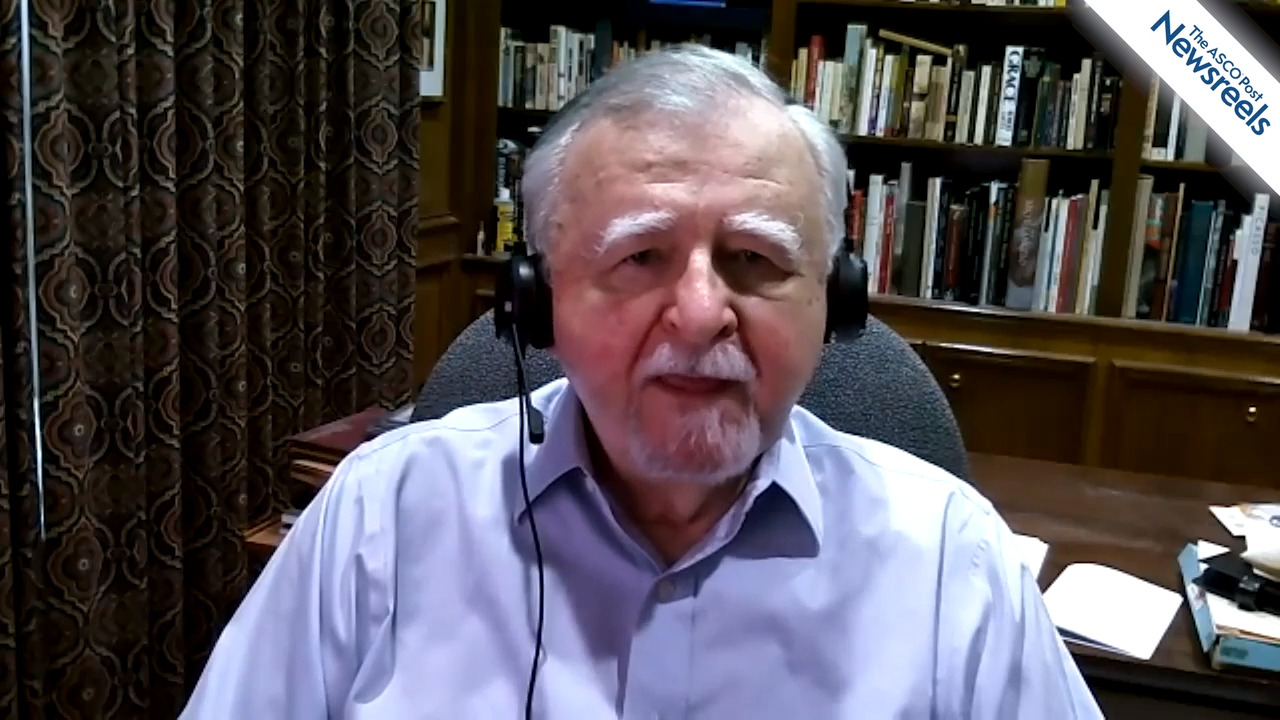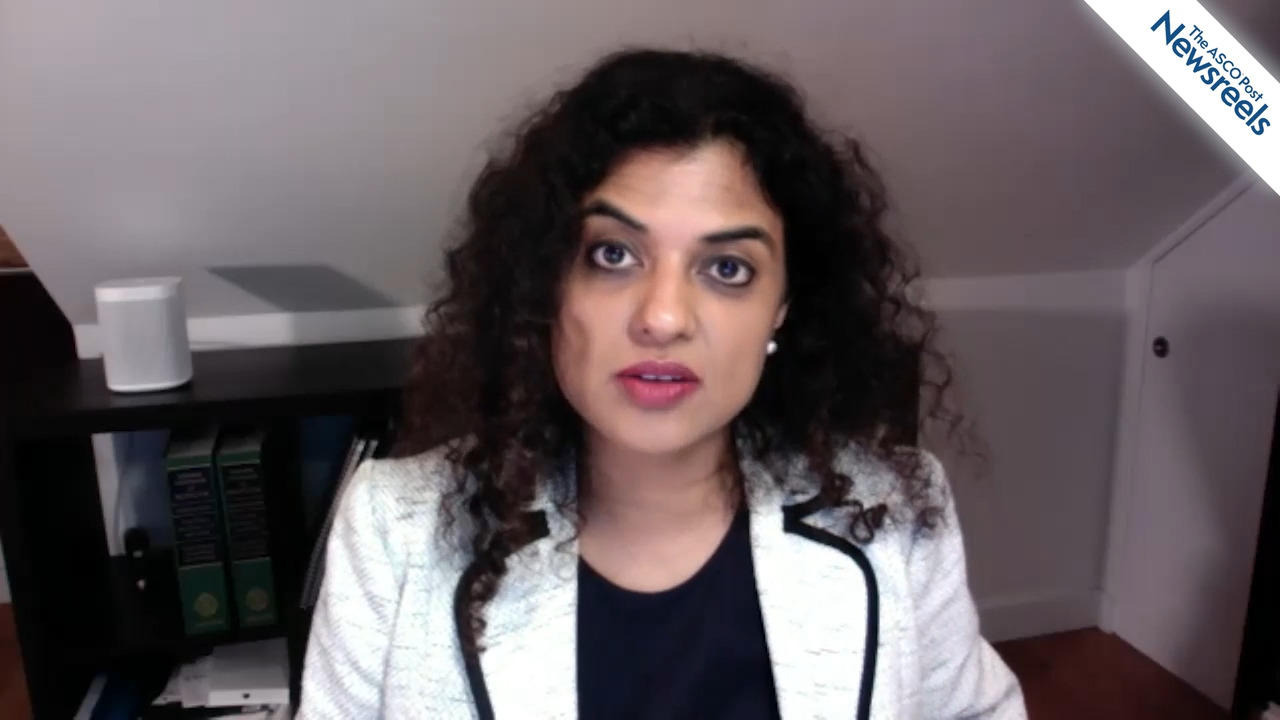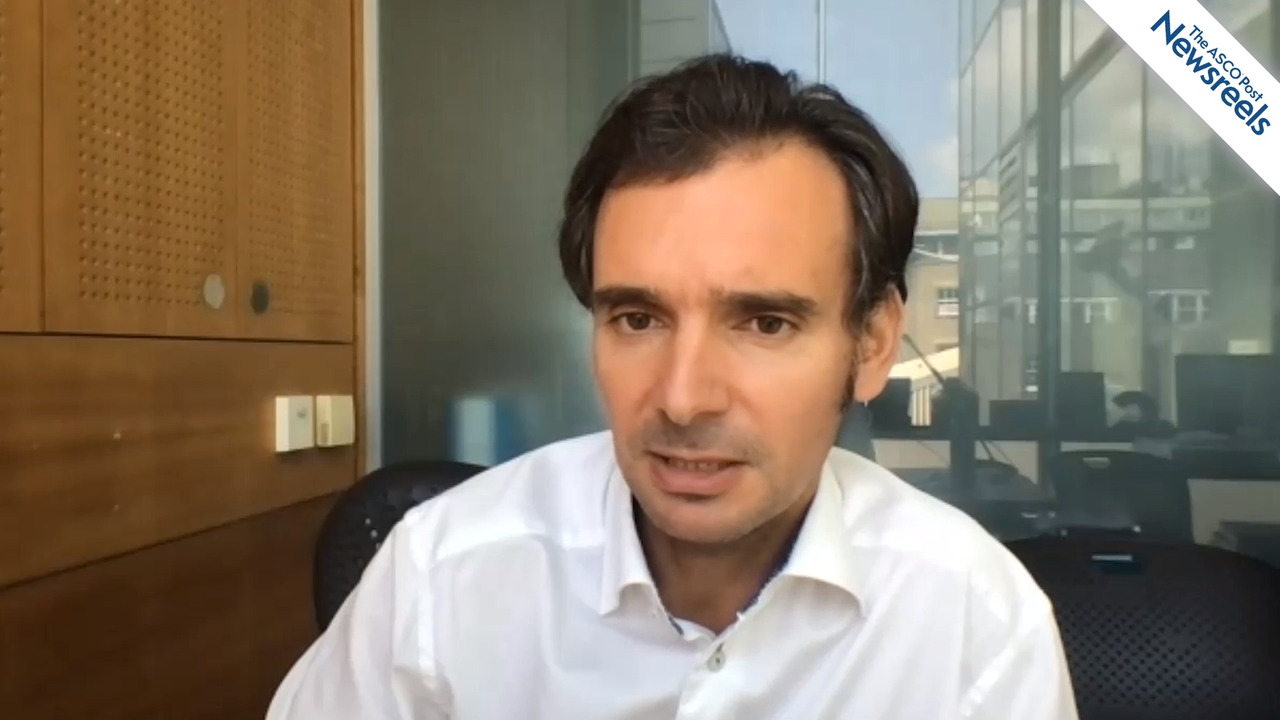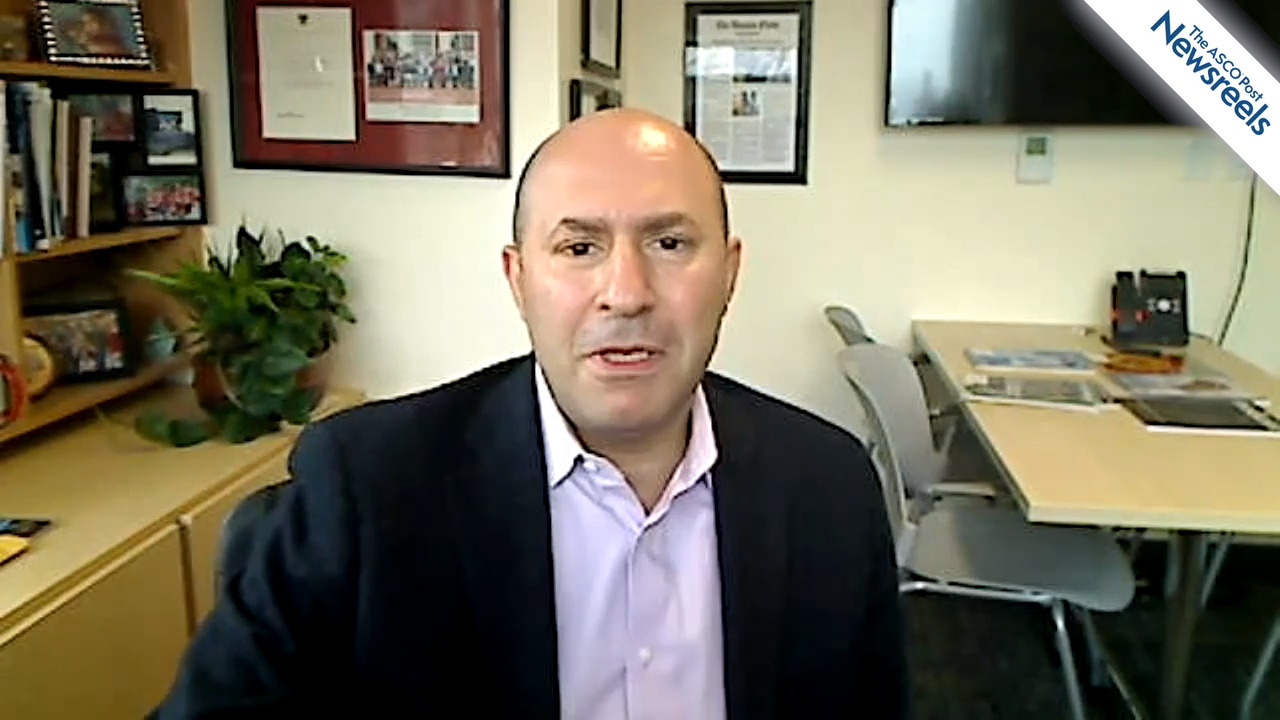Jonathan Lim, MBBS, MRCP: The Future of the Oncology Workforce Since the COVID-19 Pandemic
ESMO Congress 2021
Jonathan Lim, MBBS, MRCP, of Christie NHS Foundation Trust and the Francis Crick Institute, discusses results of an ESMO survey, which showed that the risk of poor well-being, distress, and burnout has continued to rise since the onset of the COVID-19 pandemic, despite improved job performance and sustained resilience. Those most at risk, he says, are women aged 40 years and younger (Abstract 561O).
Related Videos
The ASCO Post Staff
Hope S. Rugo, MD, of the University of California, San Francisco, discusses phase III results from the KEYNOTE-355 study of pembrolizumab plus chemotherapy, which improved overall survival vs chemotherapy alone in patients with previously untreated locally recurrent, inoperable, or metastatic triple-negative breast cancer whose tumors expressed PD-L1 (Abstract LBA16).
The ASCO Post Staff
Gabriel N. Hortobagyi, MD, of The University of Texas MD Anderson Cancer Center, discusses results from the MONALEESA-2 trial, which showed that adding the CDK4/6 inhibitor ribociclib to first-line hormonal therapy prolongs survival by 1 year for postmenopausal women with hormone receptor–positive, HER2-negative advanced breast cancer. As a result, he believes it should be considered the preferred treatment option (Abstract LBA17).
The ASCO Post Staff
Susana N. Banerjee, MBBS, PhD, of The Royal Marsden NHS Foundation Trust, discusses phase II results of the EORTC-1508 trial, the first study to combine an anti–PD-L1 antibody, atezolizumab, with bevacizumab and the COX1/2 inhibitor acetylsalicylic acid as treatment for patients with ovarian, fallopian tube, or primary peritoneal adenocarcinoma (Abstract LBA32).
The ASCO Post Staff
Gerhardt Attard, MD, PhD, of The Royal Marsden NHS Foundation Trust, discusses findings that show 2 years of abiraterone acetate plus prednisolone-based treatment improves metastasis-free and overall survival in men with high-risk nonmetastatic prostate cancer. The data suggest this combination regimen might be considered a new standard of care (Abstract LBA4).
The ASCO Post Staff
Toni K. Choueiri, MD, of Dana-Farber Cancer Institute, discusses patient-reported outcomes for quality of life in the KEYNOTE-564 study, which previously met its primary endpoint of disease-free survival with adjuvant pembrolizumab vs placebo following surgery for renal cell carcinoma (Abstract 653O).
